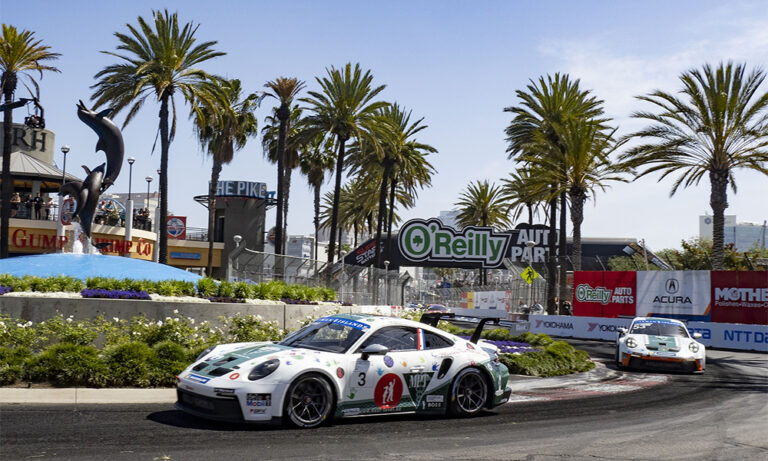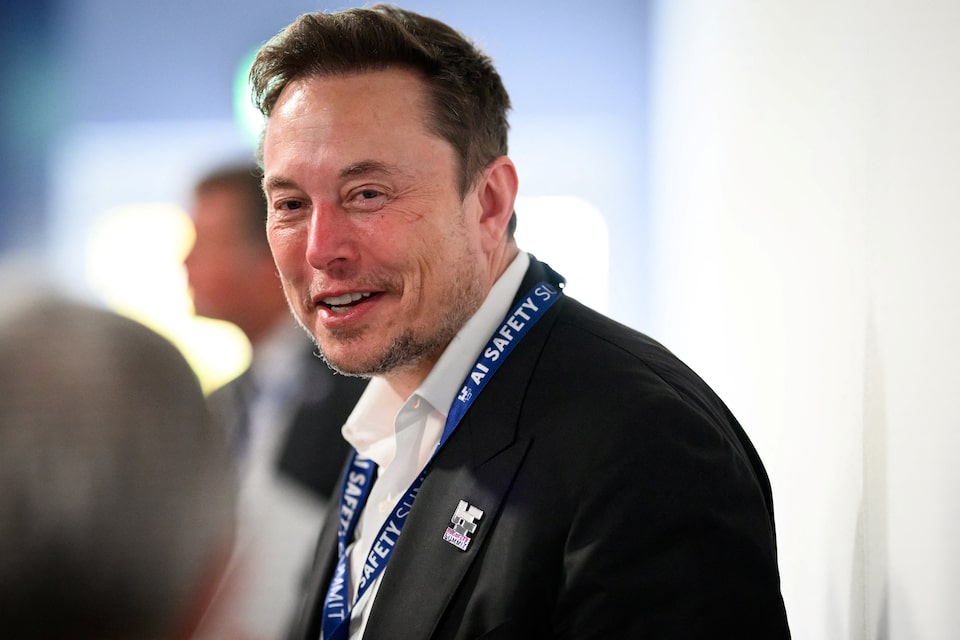The Shrinking Chinese Market: A Threat To BMW, Porsche, And Competitors

Table of Contents
Economic Slowdown and Shifting Consumer Preferences in China
The slowing Chinese economy significantly impacts consumer spending, particularly on luxury goods like high-end automobiles. This deceleration is a major factor contributing to the shrinking market for BMW, Porsche, and other international brands.
Declining Economic Growth
- Decreased Disposable Income: Slower GDP growth directly translates to reduced disposable income for Chinese consumers. This limits their spending power, affecting purchases of discretionary items such as luxury vehicles.
- Rising Unemployment Concerns: Increasing unemployment rates further dampen consumer confidence, leading to more cautious spending habits and a reluctance to make large purchases like new cars.
- Government Regulations Impacting Luxury Spending: Government regulations aimed at curbing extravagant spending and promoting domestic brands can also negatively influence luxury car sales.
Data from the National Bureau of Statistics of China shows that GDP growth has slowed considerably in recent years, impacting consumer confidence indices and subsequently reducing luxury goods sales. Reports from market research firms consistently highlight the decreased purchasing power and increased hesitancy among Chinese consumers regarding high-value purchases.
Changing Consumer Demographics and Preferences
The Chinese consumer landscape is evolving rapidly. Younger generations are increasingly prioritizing different brands and vehicle types, challenging the dominance of traditional luxury carmakers.
- Rise of Domestic Brands: Chinese automakers are rapidly gaining market share, offering competitive products at attractive prices.
- Preference for Electric Vehicles (EVs): The demand for electric vehicles is surging in China, with younger consumers showing a strong preference for eco-friendly and technologically advanced options.
- Increasing Interest in Sustainability and Technology: Sustainability and advanced technology are becoming key factors influencing car buying decisions, pushing luxury brands to adapt and innovate.
Sales figures for domestic brands like BYD, NIO, and Xpeng demonstrate their aggressive growth, fueled by technological advancements and government support. Consumer surveys reveal a clear shift towards EVs and a growing emphasis on sustainable and technologically advanced features in automobiles.
Increased Competition from Domestic Automakers
The rise of domestic Chinese automakers presents a formidable challenge to established luxury brands like BMW and Porsche in their own backyard.
Rise of Chinese Electric Vehicle (EV) Manufacturers
Chinese EV manufacturers are rapidly innovating and gaining market share, posing a significant threat to international competitors.
- Competitive Pricing: Chinese EV brands often offer competitive pricing compared to their foreign counterparts, making them attractive to budget-conscious consumers.
- Technological Advancements: These brands are rapidly advancing in battery technology, autonomous driving capabilities, and other innovative features.
- Government Support for Domestic EV Industry: The Chinese government actively supports its domestic EV industry through subsidies, tax breaks, and favorable regulations.
Market share data clearly indicates the growing dominance of Chinese EV brands, with companies like BYD consistently outpacing international competitors in sales figures. Technological comparisons highlight their competitive edge in battery range, charging speeds, and advanced driver-assistance systems.
Improved Quality and Brand Perception of Domestic Brands
Chinese automakers have significantly improved the quality and brand perception of their vehicles, making them a credible alternative to foreign luxury brands.
- Investments in R&D: Significant investments in research and development have led to substantial improvements in vehicle quality, reliability, and design.
- Improved Manufacturing Capabilities: Chinese manufacturers have adopted advanced manufacturing techniques, enhancing production efficiency and product quality.
- Successful Marketing Strategies: Effective marketing campaigns have successfully built brand awareness and positive brand perception among Chinese consumers.
Consumer satisfaction surveys and brand perception studies reveal a considerable improvement in the quality and image of Chinese automotive brands, eroding the market share of established international luxury players.
Geopolitical Factors and Supply Chain Disruptions
Geopolitical tensions and global supply chain disruptions further complicate the challenges faced by luxury car manufacturers in China.
US-China Trade Tensions
Ongoing trade disputes and tariffs between the US and China create uncertainty and increase costs for imported parts, impacting profitability and competitiveness.
- Increased Costs for Imported Parts: Tariffs on imported parts increase production costs, making luxury vehicles less competitive in the price-sensitive Chinese market.
- Trade Restrictions: Trade restrictions and uncertainties hinder efficient import and export processes, affecting supply chain stability.
- Uncertainty in the Market: Geopolitical uncertainty makes it challenging for international automakers to plan long-term strategies and investments in the Chinese market.
Import/export data reveals the significant impact of tariffs on the automotive sector, highlighting increased costs and reduced competitiveness for imported luxury vehicles.
Global Supply Chain Issues
Global supply chain disruptions, particularly semiconductor shortages, disproportionately affect luxury car manufacturers due to their complex supply chains and high reliance on specialized components.
- Production Delays: Semiconductor shortages lead to production delays, impacting the availability of luxury vehicles and potentially affecting sales.
- Increased Costs of Raw Materials: Disruptions in global supply chains increase the cost of raw materials, affecting the profitability of luxury car manufacturers.
- Challenges in Logistics: Global supply chain bottlenecks create logistical challenges, hindering the timely delivery of parts and finished vehicles.
Statistics on supply chain disruptions and production figures for major luxury car brands vividly illustrate the negative consequences of these disruptions on their operations and profitability.
Conclusion: Navigating the Challenges in the Shrinking Chinese Market
The shrinking Chinese market presents significant challenges for BMW, Porsche, and their competitors. Economic slowdown, the rise of competitive domestic brands, and geopolitical factors create a complex and dynamic environment. Adapting strategies to the changing market dynamics is crucial. This may involve focusing on electric vehicles, adopting localization strategies, or diversifying markets to mitigate the risks associated with over-reliance on a single market. Understanding the complexities of the shrinking Chinese market is crucial for the success of BMW, Porsche, and all automotive players. Stay informed and adapt your strategies accordingly.

Featured Posts
-
 Mntn Ipo Ryan Reynolds Company Poised For Stock Market Debut
May 11, 2025
Mntn Ipo Ryan Reynolds Company Poised For Stock Market Debut
May 11, 2025 -
 Montego Bay Jamaica What To See Do And Experience
May 11, 2025
Montego Bay Jamaica What To See Do And Experience
May 11, 2025 -
 Amazon Boss Jeff Bezos James Bond Poll The Results Are In
May 11, 2025
Amazon Boss Jeff Bezos James Bond Poll The Results Are In
May 11, 2025 -
 El Regalo Poco Convencional De Uruguay Para Fortalecer El Comercio Ganadero Con China
May 11, 2025
El Regalo Poco Convencional De Uruguay Para Fortalecer El Comercio Ganadero Con China
May 11, 2025 -
 Eric Antoine Et Sa Nouvelle Compagne Naissance De Leur Enfant Apres Son Divorce
May 11, 2025
Eric Antoine Et Sa Nouvelle Compagne Naissance De Leur Enfant Apres Son Divorce
May 11, 2025
